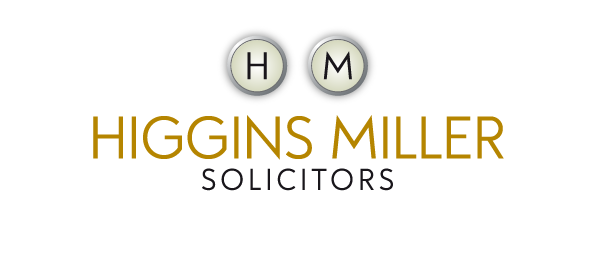The team at Higgins Miller are experts in dealing with issues of family law, and most of the time this means guiding people through processes such as divorce, dealing with a will and probate or liaising with social services. Work of this kind involves combining an understanding of the latest legal position with experience of handling family cases and an understanding of how stressful dealing with legal matters can be. Perhaps the most stressful cases we deal with are those which involve a family dispute.
A family dispute, as the name suggests, is a conflict or argument which occurs within a family group. Some of the types of family dispute which you might find yourself caught up in include the following:
Divorce and Separation – the family dispute which arises during a divorce or separation could be based around discussions of finances and how they will be handled after the divorce, the question of arrangements for the future of any children of the marriage, or a combination of the two issues.
Child Arrangements – although it might be assumed that a family dispute which arises around the question child arrangements does so as part of a divorce or separation, the truth of the matter is that this type of family dispute can also arise when parents disagree on matters such as education or health. Parents might disagree about a course of medical treatment being offered to a child, or which school they should be attending, and the dispute, if not handled carefully, could end up in a court appearance.
Grandparents’ Rights – Grandparents sometimes become involved because they feel they are not being granted sufficient access to their grandchildren. The issue of grandparents’ rights and the access allowed to grandchildren is more complicated than that of parental rights and that’s why legal advice is often needed during a dispute of this kind.
Although we are a law firm, and we’re more than ready to support our clients if they feel the need to go to court, our advice is always based upon trying to reach a resolution to a family dispute without recourse to the courts. Going to court to settle a dispute is a time-consuming and expensive process, as well as being emotionally distressing, so we always work with clients to help them to access some form of dispute resolution. This usually takes the form of some kind of mediation. Mediation of this kind is particularly useful if the family dispute has caused tempers to fray and made reaching an amicable agreement difficult. The role of a professional mediator is to act as an impartial facilitator between the sides of the family dispute, giving them the space to present their opinions in a calm and non-adversarial manner, and acting as a buffer and sounding board. Support of this kind can make it easier to work through a family dispute in an honest and amicable way, getting to the root of the problem and trying to find shared ground and the space in which an agreement can be reached. A court, on the other hand, will merely apply the law as it stands to a particular problem, without giving the people involved in the family dispute as much of a chance to express themselves. Because they are not invested in the family dispute or emotionally involved in the situation, a professional mediator may well be able to spot a solution which has eluded all of those more deeply involved. We always explain to clients caught up in a family dispute that the process of meditation provides a safe and neutral setting with complete confidentiality, and that the people involved – rather than a judge – will ultimately be responsible for reaching a decision. The four principles which need to be adhered to for a process such as mediation or any other form of arbitration to be effective are as follows:
- It is entered into on a voluntary basis, with all parties to the family dispute being willing participants
- It is confidential, with all of those involved in the family dispute knowing that no details will be leaked
- It is impartial, with the mediator not representing a particular party or taking sides
- It is controlled by the parties themselves, with any decisions made being ultimately in their hands
If you manage to reach an amicable conclusion to your family dispute then the experts at Higgins Miller will help you to writer up an agreement which can then be used as an informal reminder of what has been agreed, or turned into something legally binding.
With the best will in the world, however, there can sometimes be a family dispute which can’t be solved through mediation and requires a Court order to set things right. We always think of this as a last resort, however, unless the family dispute involves matters such as domestic abuse or children being at risk from harm. We will explain if this is the only viable course of action, and then help any client involved in a family dispute to achieve a fair result in court.
If you’d like to find out more about dealing with a family dispute please call us on 0161 429 7251 or email us at [email protected]. We’ve recently passed our Cyber Essential accreditation, something which demonstrates our forward-thinking attitude and determination to remain ahead of the competition. The first 20-minute appraisal is provided free of charge, and we’ll give you the first appointment for a fixed fee, so you don’t have to worry about how much our advice is going to cost. If you want to explore our wider charging system then please take a look here.


